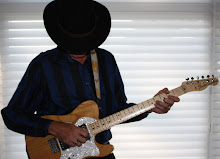Sometimes I hear
a voice saying, "It's okay to go on about the other guys, but why don't
you just admit your second favourite
band is Led Zeppelin?"
Thursday, 30 March 2017
Thursday, 23 March 2017
Hail! Hail! Rock n Roll!
He might not have invented Rock n Roll, but he defined it. Everything that’s come after has been built
on his foundation.
But don’t read me. Read Gibson’s
lovely tribute to Chuck Berry. As the article says, “most influential
musician ever? Just ask a Beatle.”
Labels:
50's,
60's,
70's,
chuck berry,
culture,
gibson,
guitar,
music,
rock,
rock and roll
Thursday, 9 March 2017
Getting Better
Part II of my
rebuttal to Professor Armand Leroi’s preposterous assertion that The Beatles had virtually no
influence on pop music.
Chuck Berry,
Elvis, Little Richard, Buddy Holly, the Everlys - played by punks, punks who
grew up listening to show tunes, folk songs, sing-alongs, music hall numbers, cowboy
movies, and Granny’s weekly performance at the pub.
By the time they
had emerged from Hamburg and those 6 hour sets, The Beatles had developed their
own unique sound, a sound which incorporated that early rockabilly, 50’s
R&B, and yes, their childhood influences. They had become adept at absorbing other
styles and transforming them into their own brand of rock and roll.
Then there was soul
music, and the pixie dust of Motown, which had, in its own way, done the same
thing.
Dylan, folk-rock,
classical, Eastern, psychedelic, singer/songwriter, hard rock, each one studied,
re-imagined and grafted on to that ever-expanding base. Each new experiment set someone else off on
another new idea, which looped right back to The Beatles for them to start all
over again. Getting so much better all
the time.
There is no
scientific way to explain the influence of The Beatles, because it magic.
Labels:
50's,
60's,
Beatles,
buddy holly,
chuck berry,
culture,
dylan,
elvis,
folk-rock,
little richard,
motown,
music,
psychedelic,
r&b,
rock,
rock and roll
Friday, 3 March 2017
You Can’t Do That
So, Armand Leroi, a professor at Imperial College London, has concluded
that The Beatles had virtually no
influence on pop music, having had computers analyze hits
from 1960 through 2010.
To which I would say this: At
every step of their career, The Beatles absorbed the music around them,
assimilating each style, giving it new life from the raw force of pure rock and
roll. Each addition created new opportunities for other artists, which The
Beatles then heard and absorbed in turn. And on and on it went. That’s
what you call music evolution.
Computer analysis is irrelevant. The
record shows that all the major artists over that half century have
acknowledged the influence The Beatles had on them, and The Beatles freely and
frequently acknowledged who they were listening to and learning from.
And in the end, the love you take is equal to the love you make.
Subscribe to:
Comments (Atom)
